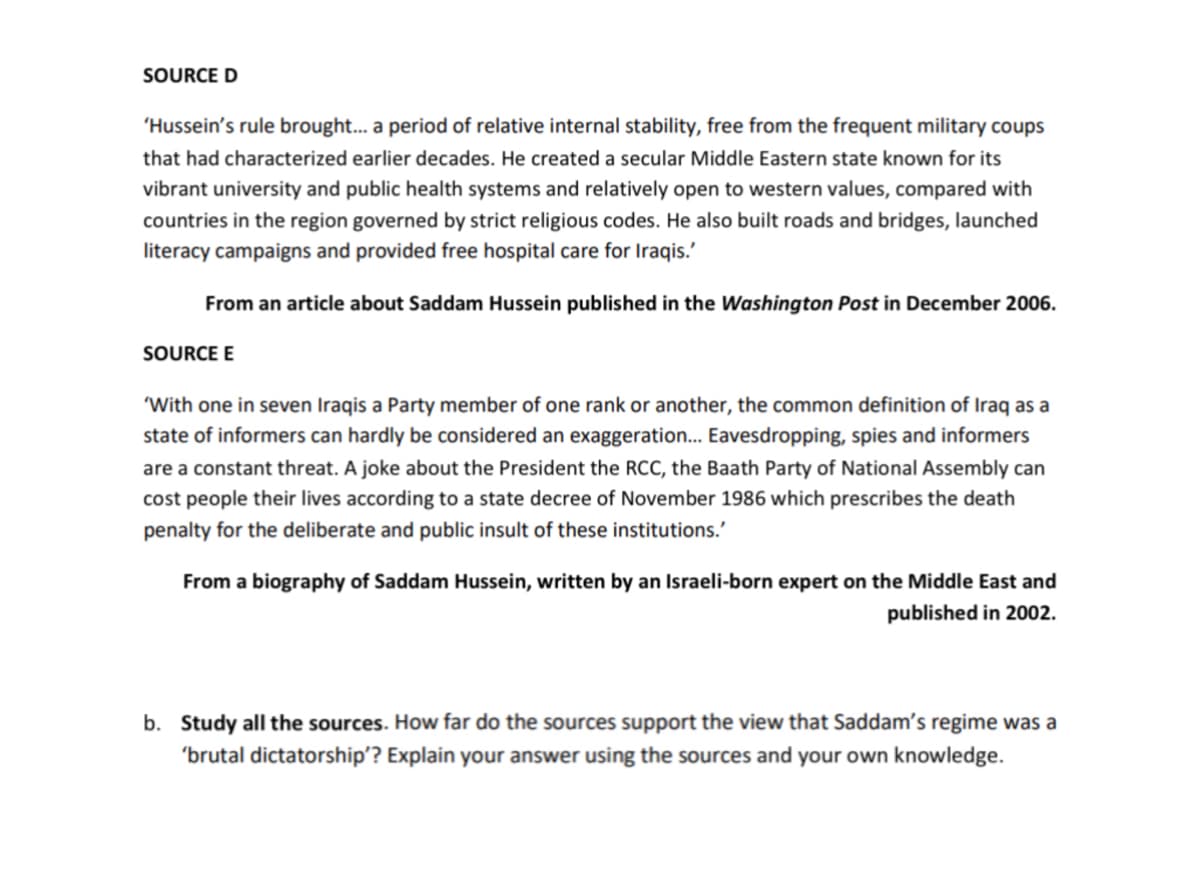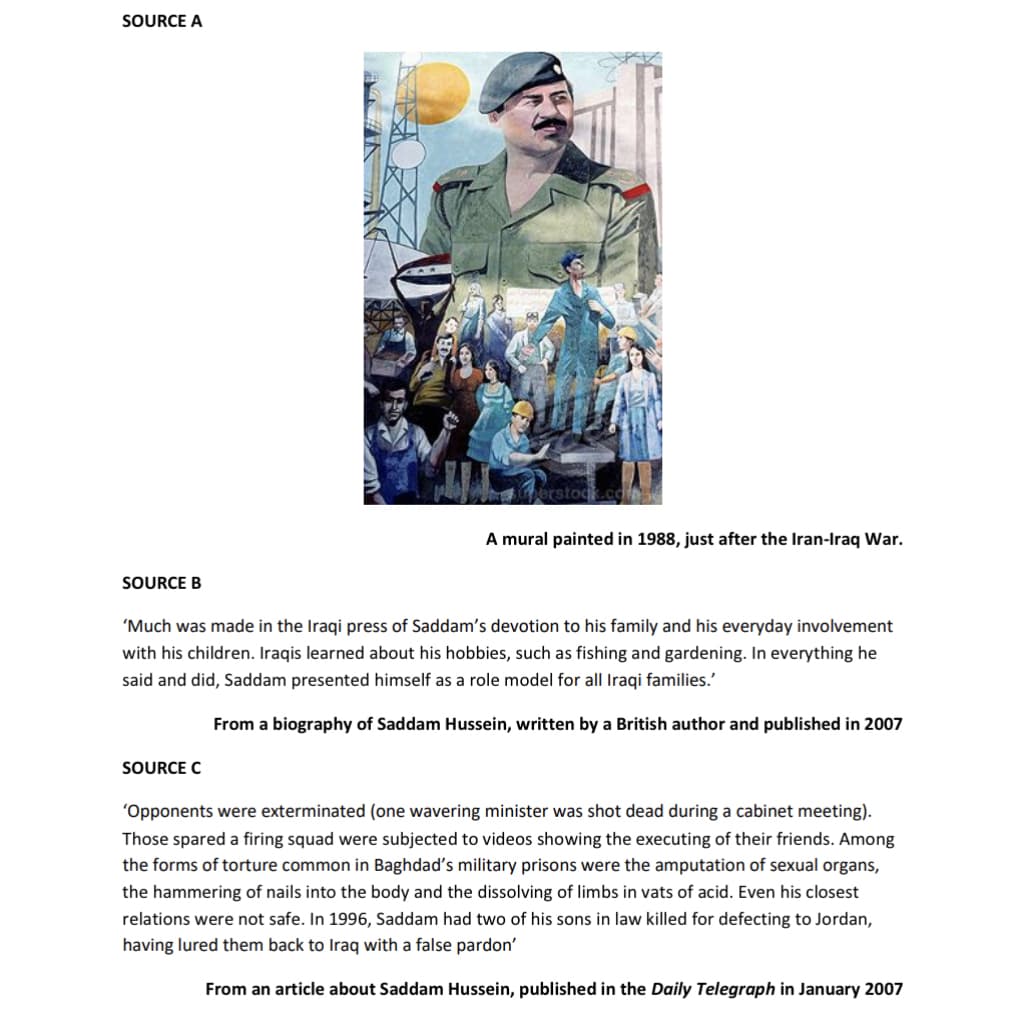b. Study all the sources. How far do the sources support the view that Saddam's regime was a 'brutal dictatorship'? Explain your answer using the sources and your own knowledge.
b. Study all the sources. How far do the sources support the view that Saddam's regime was a 'brutal dictatorship'? Explain your answer using the sources and your own knowledge.
Related questions
Question

Transcribed Image Text:SOURCE D
'Hussein's rule brought... a period of relative internal stability, free from the frequent military coups
that had characterized earlier decades. He created a secular Middle Eastern state known for its
vibrant university and public health systems and relatively open to western values, compared with
countries in the region governed by strict religious codes. He also built roads and bridges, launched
literacy campaigns and provided free hospital care for Iraqis.'
From an article about Saddam Hussein published in the Washington Post in December 2006.
SOURCE E
'With one in seven Iraqis a Party member of one rank or another, the common definition of Iraq as a
state of informers can hardly be considered an exaggeration... Eavesdropping, spies and informers
are a constant threat. A joke about the President the RCC, the Baath Party of National Assembly can
cost people their lives according to a state decree of November 1986 which prescribes the death
penalty for the deliberate and public insult of these institutions.'
From a biography of Saddam Hussein, written by an Israeli-born expert on the Middle East and
published in 2002.
b. Study all the sources. How far do the sources support the view that Saddam's regime was a
'brutal dictatorship'? Explain your answer using the sources and your own knowledge.

Transcribed Image Text:SOURCE A
SOURCE B
A mural painted in 1988, just after the Iran-Iraq War.
'Much was made in the Iraqi press of Saddam's devotion to his family and his everyday involvement
with his children. Iraqis learned about his hobbies, such as fishing and gardening. In everything he
said and did, Saddam presented himself as a role model for all Iraqi families.'
From a biography of Saddam Hussein, written by a British author and published in 2007
SOURCE C
'Opponents were exterminated (one wavering minister was shot dead during a cabinet meeting).
Those spared a firing squad were subjected to videos showing the executing of their friends. Among
the forms of torture common in Baghdad's military prisons were the amputation of sexual organs,
the hammering of nails into the body and the dissolving of limbs in vats of acid. Even his closest
relations were not safe. In 1996, Saddam had two of his sons in law killed for defecting to Jordan,
having lured them back to Iraq with a false pardon'
From an article about Saddam Hussein, published in the Daily Telegraph in January 2007
Expert Solution
This question has been solved!
Explore an expertly crafted, step-by-step solution for a thorough understanding of key concepts.
Step by step
Solved in 2 steps
